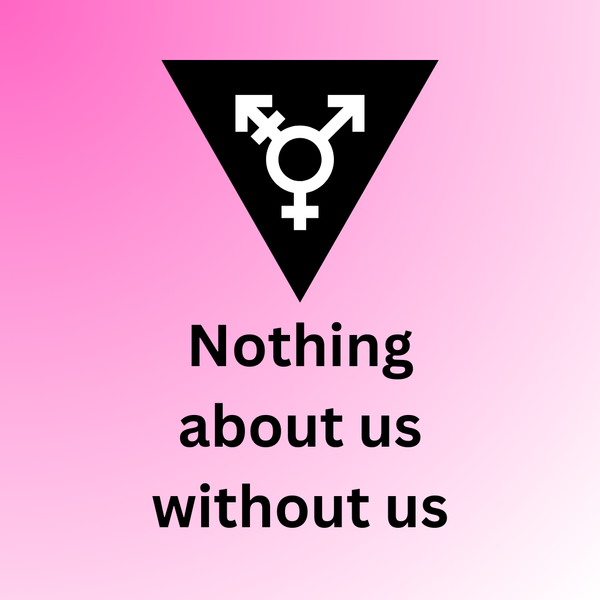Why the Starmer government worries me as a trans woman
The Tories are out of government for the first time in 14 years in the UK. For a lot of people, this is cause for celebration, there’s a…

The Tories are out of government for the first time in 14 years in the UK. For a lot of people, this is cause for celebration, there’s a sense that even if a Labour government won’t fix all of our problems, they might at least do less harm than the Tories or even be an easier opponent to fight from the left. Against that background, it might seem a little churlish that a lot of people on the left aren’t too excited, a lot of people are happy and we’re raining on their parade by being negative about little things like Labour’s last minute panicked promises that they’d be transphobic enough to please hasbeen 90s celebrities who’ve made hating trans people their whole personality. I’ve made no secret of the fact that I’ve never been optimistic about the prospect of Keir Starmer in government, but here I’d like to elaborate on why.
Labour’s election manifesto was, in my view, something of a mixed bag for trans people. Amidst some equivocal promises on things like GRA reform (they’ll make it a little better, but not in a way that matters), hate crime legislation (they’ll make transphobic hate crime an aggravated offence, something that won’t make us any safer) and the Cass Review (they’ll implement its harmful and cis supremacist recommendations) is the following on single sex spaces:
Labour is proud of our Equality Act and the rights and protections it affords women; we will continue to support the implementation of its single-sex exceptions — Labour Party, Change — Labour Party Manifesto 2024, pg 89
This is an odd inclusion for a manifesto because it’s not so much a promise to change (a word that appears so many times in the Labour manifesto it’s almost impossible to parody) anything so much as a promise not to change something. It suggests that when it comes to the Equality Act 2010 and single sex spaces, Labour thinks the law as it currently exists is fine. Which is a good sign for trans people because the commonly understood reading of the law is that trans people should only be excluded from single sex spaces for our identified gender where it is a proportionate means of achieving a legitimate aim. In other words that the default should be trans inclusion and exclusion must be justified. You can’t exclude trans people just because you want to or you have a negative view of trans people, nor can you exclude us where there’s a less discriminatory means of meeting your proposed aim. This is outlined in the Equality and Human Rights Commission’s statutory code of practice on the Equality Act. As statutory guidance, this code outweighs other, non-statutory guidance that has been issued.
If a service provider provides single- or separate sex services for women
and men, or provides services differently to women and men, they should
treat transsexual people according to the gender role in which they present. However, the Act does permit the service provider to provide a different service or exclude a person from the service who is proposing to undergo, is undergoing or who has undergone gender reassignment. This will only be lawful where the exclusion is a proportionate means of achieving a legitimate [aim]. — Equality and Human Rights Commission, Services, public functions and associations: Statutory code of practice, pg 197
This is a little hard to square, however, with what senior Labour politicians have had to say about trans inclusion. Labour leader and now Prime Minister Keir Starmer, for instance, said of trans women using single-sex spaces and services “They don’t have that right. They shouldn’t” in total opposition to the Equality Act that he claims to support.
Equally concerning is new Health Secretary Wes Streeting’s equivocation on the issue, in which he called for “wards for women, wards for men, and also suitable, safe accommodation for trans people too.” I think there’s a strong case to be made that, even if “suitable, safe accommodation for trans people” in specific existed in UK hospitals (it does not), a policy of segregating trans patients by default would constitute gender reassignment discrimination. What worries me most of all, however, is that such discrimination might take place unofficially.
As long as the Equality Act 2010 remains unchanged, trans people have a legal right to use services according to the gender role we present, but alongside the Prime Minister and multiple cabinet ministers suggesting we don’t have such a right, it seems likely that some people working in those services might take their word for it.
One issue with the Equality Act is that once you’ve been discriminated against, it’s usually down to you to take action. Whether that’s making complaints, taking legal action or through other means. If, for example, you’re a trans patient in a hospital and a transphobic member of staff decides to place you somewhere inappropriate that puts you at risk or otherwise mistreats you because he’s seen the Health Secretary loudly, repeatedly signalling that that kind of thing is good and cool, it’s up to you, as somebody probably sick or injured or otherwise vulnerable to make complaints to the hospital.
The feminist scholar Sara Ahmed has written extensively on complaint. Inspired by her own experiences of pursuing complaints in academia, Ahmed spoke to people who had also done so. What Ahmed found was that the act of pursuing a complaint means putting yourself at odds with a whole institution. Complaints processes are often labyrinthine and function more to protect institutions than to redress harm those institutions do. As Ahmed says “To make complaints is to learn how they work and for whom they work.” Even where policy and the law is on a complainant’s side, the process of complaint often exposes those policies as non-performative, existing not to enact what they say but to prevent what they say from ever being enacted.
I was told it was now a formal process. I had to look at all the policies. I found there was this fog. It was constant. Every time I found clarity — isn’t it supposed to happen in accordance with policy blah blah-blah — this has been around ten years, isn’t this supposed to happen, and they would be like no. — interview subject, quoted in Sara Ahmed, Complaint as a Queer Method
Complaint can be political praxis, it can be a means by which we defend ourselves against harm done to use by institutions. It can also be traumatic, hard work that doesn’t always get you anywhere even when you’re right and everybody knows it.
Discrimination against trans people in public services is already rife. Research by TransActual has found that 70% of trans people have experienced transphobia while accessing healthcare. Healthcare discrimination leads to avoidance, one in four respondents to TransActual’s survey say that they avoid GP appointments for “gender related” or “sex related” matters like cervical and prostate cancer screening. Healthcare discrimination can lead to trans people receiving a lower standard of care, directly damaging our bodies and minds, in extreme cases, it can even lead to death. Even if no policy directly results from Wes Streeting’s legally ignorant and transphobic statements about healthcare, they still might lead to trans people being seriously harmed.
How many vulnerable trans women are going to be isolated and mistreated when they’re sick or injured because of statements like the ones Streeting is making? How many of them are going to have the means to complain and actually be listened to? If Streeting and the rest of Starmer’s cabinet can’t be made to stop, it’ll be left to the very trans people harmed to do anything about it.
As a trans woman, I’m making doubly sure I know the law and which organisations have good information on my legal rights should I need it. I’m also making sure I know what support groups exist in my area. I’d encourage any other trans people in the UK who haven’t already done so to do the same. Seek out advice, seek out sources of support, make sure that if you find yourself doing the work of Complaint, you won’t be doing it alone. We shouldn’t have to, but thanks to transphobic cis politicians like Starmer and Streeting, we don’t have much choice.

